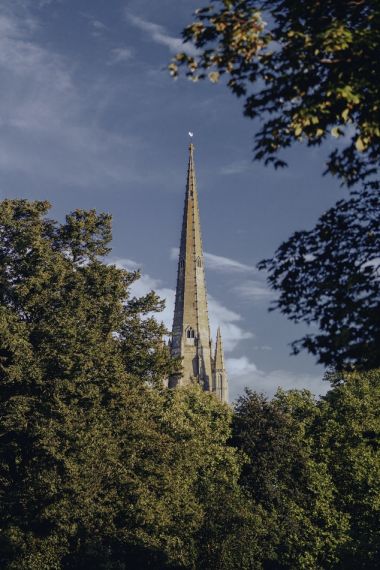The Church of England's governance shake-up ignores the elephants in the room

It would seem that the Church of England's higher-ups do not feel that the electoral process is delivering the sort of people they want at the top of the institution. That is if the new report from the Governance Review Group (GRG) is representative of how the CofE hierarchy is thinking.
The Archbishops of Canterbury and York want a more streamlined governance structure for the national Church. So they set up the GRG led by the Bishop of Leeds, Nick Baines.
He unveiled the GRG's proposals on Tuesday. The report is recommending a single body to oversee the CofE under the suggested name of the Church of England National Services, which would take on most of the functions now spread across seven National Church Institutions (NCIs).
These are: the Archbishops' Council, the Church Commissioners, the Church of England Pensions Board, Church of England central services, the National Society and the two Archbishops with their palaces and staff.
"Whilst we recognise that the Church of England has historic reasons for its fragmented organisational ecology, we have nonetheless been confident from the outset that the status quo in its current complexity is not sustainable or suitable for the Church's future mission," the GRG report says.
"This complexity does not nourish the organism of the Church so much as it encourages confusion, duplication and accountability gaps. Our initial information-gathering exercise has reinforced this view."
The report will go before the first meeting of the General Synod in November for its new five-year term after this month's elections. Bishop Baines hopes the Synod will "take note of the report" allowing it to be discussed more fully at February's meeting.
The proposal for a single governing body has been well covered in the media. But what seems to have been missed in the coverage is some of the rather sinister rhetoric in the report.
Take this statement in section 190: "In the Church of England, a significant number of appointments to governance bodies are made through the electoral process. In our view, this does not deliver what the Church needs from its governing bodies.
"The Church bodies which either elect or nominate people onto the Church of England's governance bodies are themselves not very diverse bodies, meaning that the people they elect or nominate onto governance bodies tend not to supply the diversity which is one of the requirements of the UK Corporate Governance Code."
Put simply, it would seem that the members of the GRG, which include the Bishop of Willesden, Pete Broadbent, and the former First Church Estates Commissioner, Loretta Minghella, are unhappy with the kind of people the General Synod is electing onto the CofE's existing governing bodies.
Sound familiar? As the defeated Labour local councillor put it after May's elections, "The voters have let us down."
But there is another, darker dimension to this. What do Marxist utopians do when they take over countries? They abolish the free press and they abolish free elections.
The GRG has not gone so far as to propose the complete abolition of democracy in the CofE's governance. They want to see a Nominations Committee set up which "should 'sift' those wishing to stand in advance of the election in order to verify that they have the appropriate skills, knowledge, experience and behaviours to be able to perform their trustee duties responsibly and effectively".
"In carrying out this sifting process, the nominations panel should seek have in mind the aim of ensuring that the body to which they are appointing has the appropriate composition (including skills, knowledge, experience and diversity) across appointed and elected members.
"This pre-election sifting – whilst rigorous - should not be so onerous as to remove democracy," the report says.
How reassured newly-elected General Synod members are by that apparent desire to retain democracy remains to be seen.
But what is clear is that a governance shake-up cannot take away the two elephants in the CofE's room. Those are declining attendance, which of course reduces the number of volunteers available to serve the Church locally and nationally, and the doctrinal chaos in the CofE.
If the house is divided over the spiritual and the moral message its residents are putting up on its windows, how can that house stand?
Does "holy Scripture set out unto us only the Name of Jesus Christ, whereby men must be saved," as the CofE's 39 Articles of Religion declare?
Or can a person get to heaven by being a good Muslim or a good Buddhist or a good secular humanist?
Is the God-created institution of heterosexual marriage the only right context for the expression of sexual love, as the Book of Common Prayer says it is? Or is sex outside a one man one woman marriage now permissible for Christians?
The CofE is deeply divided on these central questions, and on a number of other issues as well, such as the allocation of resources. Should money be going into more central posts or into propping up the creaking parish system?
Surely putting its governance body in one room instead of having various bodies meeting in different rooms around the house is most unlikely to change that?
Julian Mann is a former Church of England vicar, now an evangelical journalist based in Morecambe, Lancashire.











